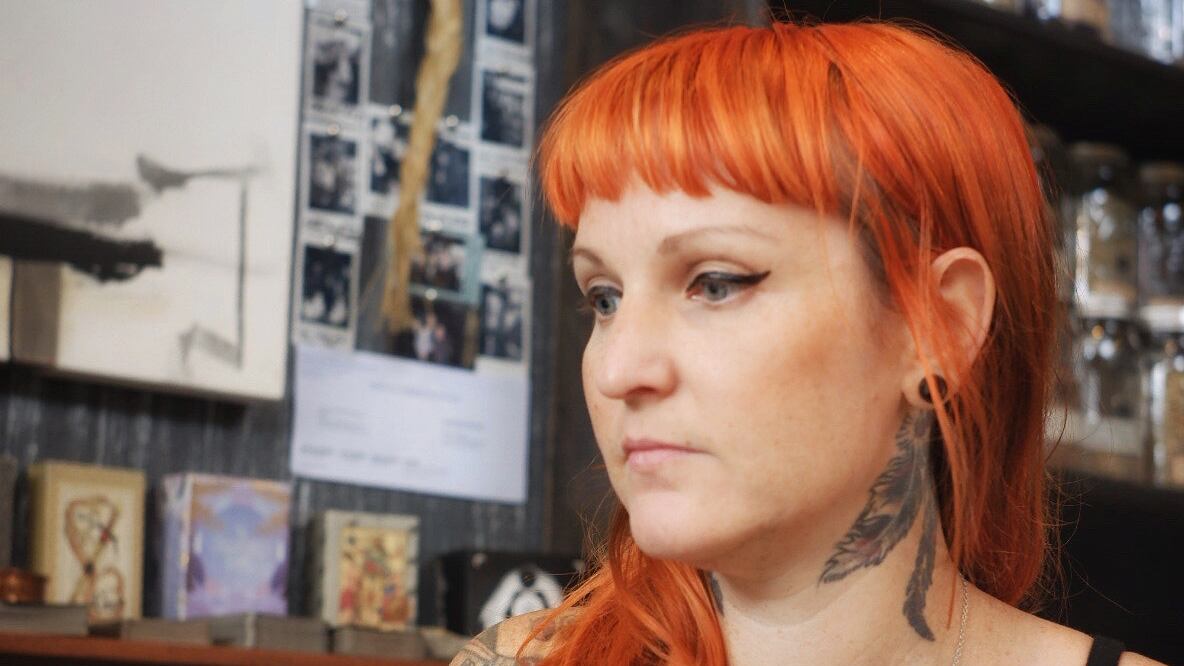Erika Fortner may claim she’d never once considered a career in retail, but the founder of Queen Meb—the Northeast Broadway boutique that’s part Dosha, part Diagon Alley, offering tarot readings, brooms, and witching herbs, alongside body scrubs and lip balm—seems eerily well-suited for her current role. Fortner, who claims a direct lineage to the legendary Celtic sorceress who inspired her business’s branding, has always felt a kinship with the spirits. She earned a BFA from New York’s Pratt Institute while working as a tarot guide for the Psychic Friends Network (“nineties psychics had a particular flavor,” she laughs, “very inauthentic”), but given her family’s background in furniture repair and her first career as a finish specialist for iconic abstract artist Julie Mehretu, Fortner also developed an aggressively DIY approach to household magic.
“The [Wiccan] revival comes from midwives and women who weren’t necessarily taught which herbs to use,” she says, “but found they could just listen to the plants and understand their vibe.”
Ever since a desperately concocted homemade poultice somehow protected her cracked, bleeding, overscrubbed art-restorer hands when all commercial salves had failed, Fortner says she’s been “like a mad scientist making all sorts of handmade products and weird fermentations. We have handmade soaps. I’m doing a nail polish right now that’s fabulous. There’s about 180 different incense resins. Pounds and pounds of herbs. Crystals, obviously. People are really digging the smoking blends—tobacco, CBD. [Herbal smoking blend] Sex, Trance & Astral Travel uses a bit of lotus as mild aphrodisiac.” After a pause, she laughs. “We try to elevate, but this world of witchcraft doesn’t shy away from the lusty side of life.”
From the fun-sized, cast-iron cauldrons imported from India to the grimoires and sculptures commissioned from local artisans—Fortner has personally curated her stock and encourages patrons to lose themselves in the cross-cultural blend of items purposefully presented without identifying tags.
“How you actually feel and experience something is more important than what it tells you it’s supposed to do. That’s why I don’t have signs on anything. Let yourself be guided by whatever you feel drawn to. Study it, do what you want, and then we’ll talk about what it is. What you’re drawn to should answer some questions.”

